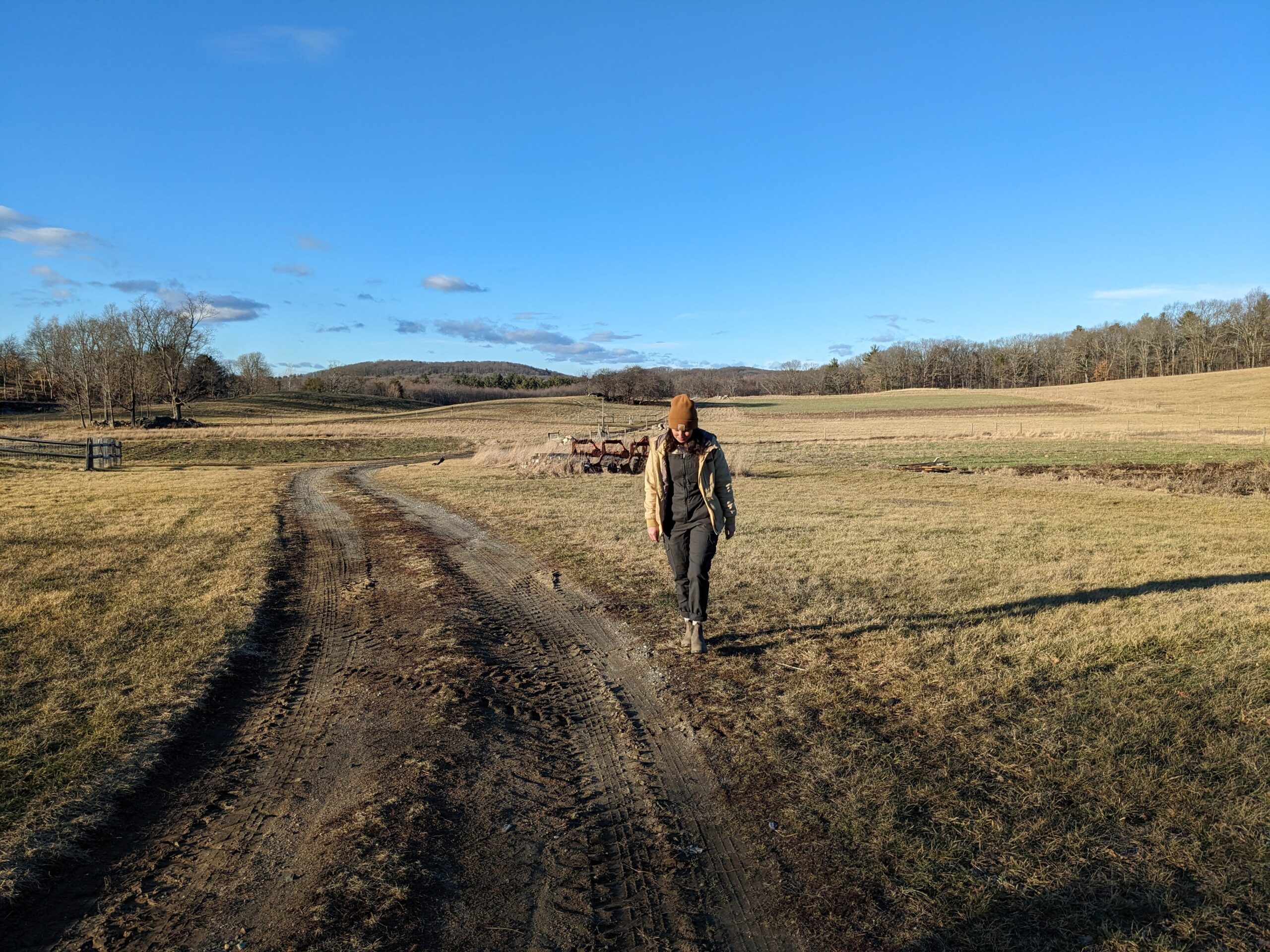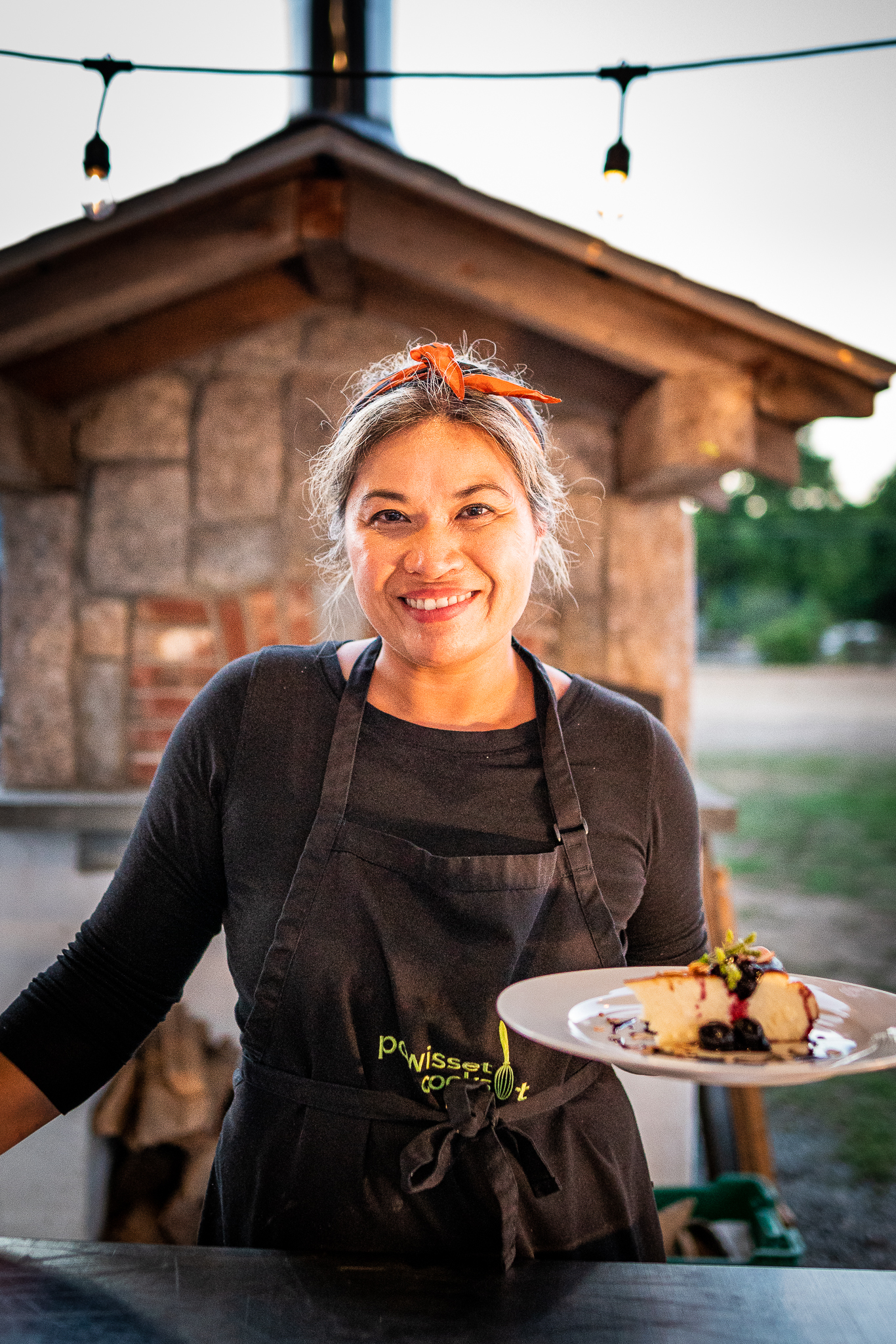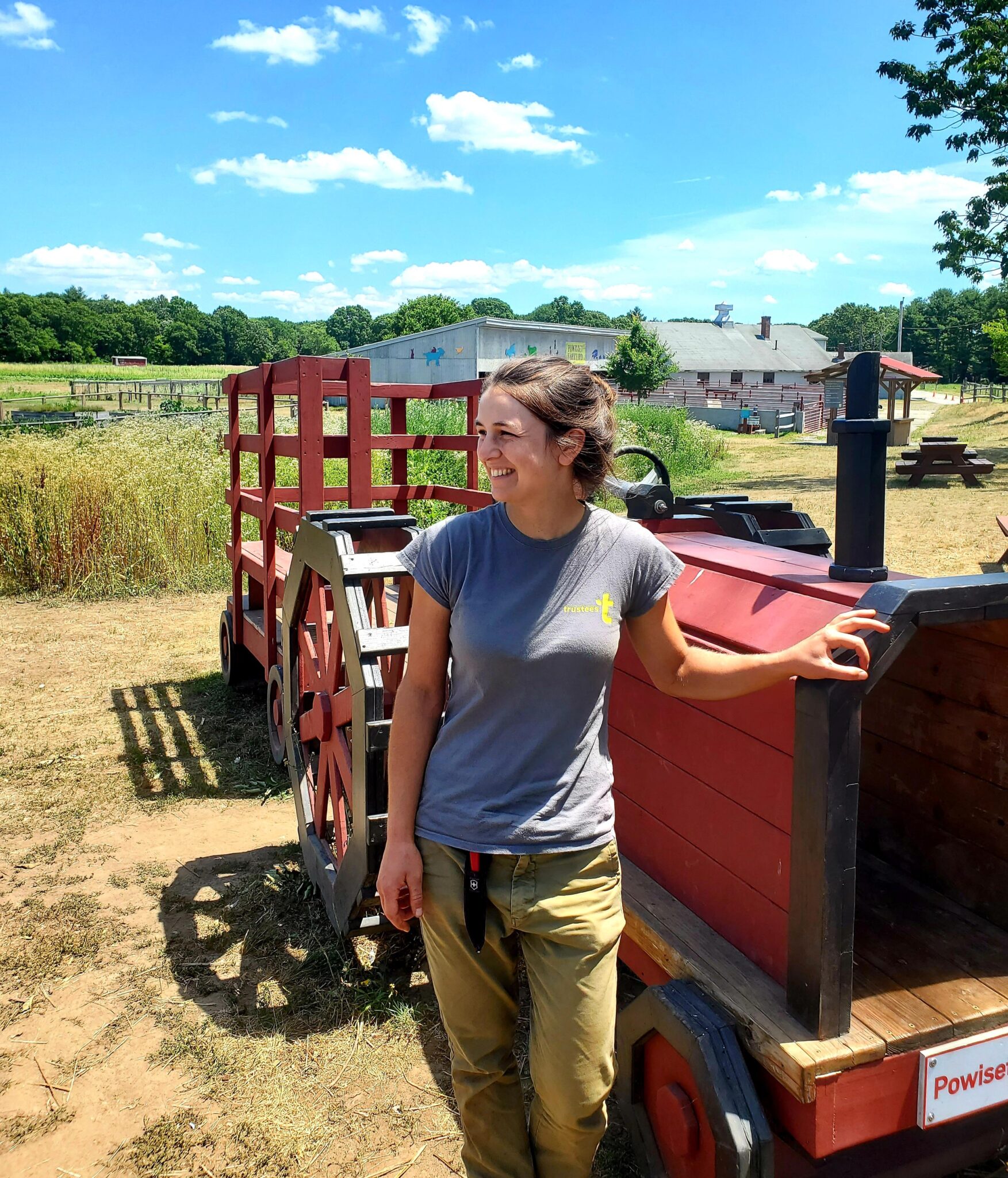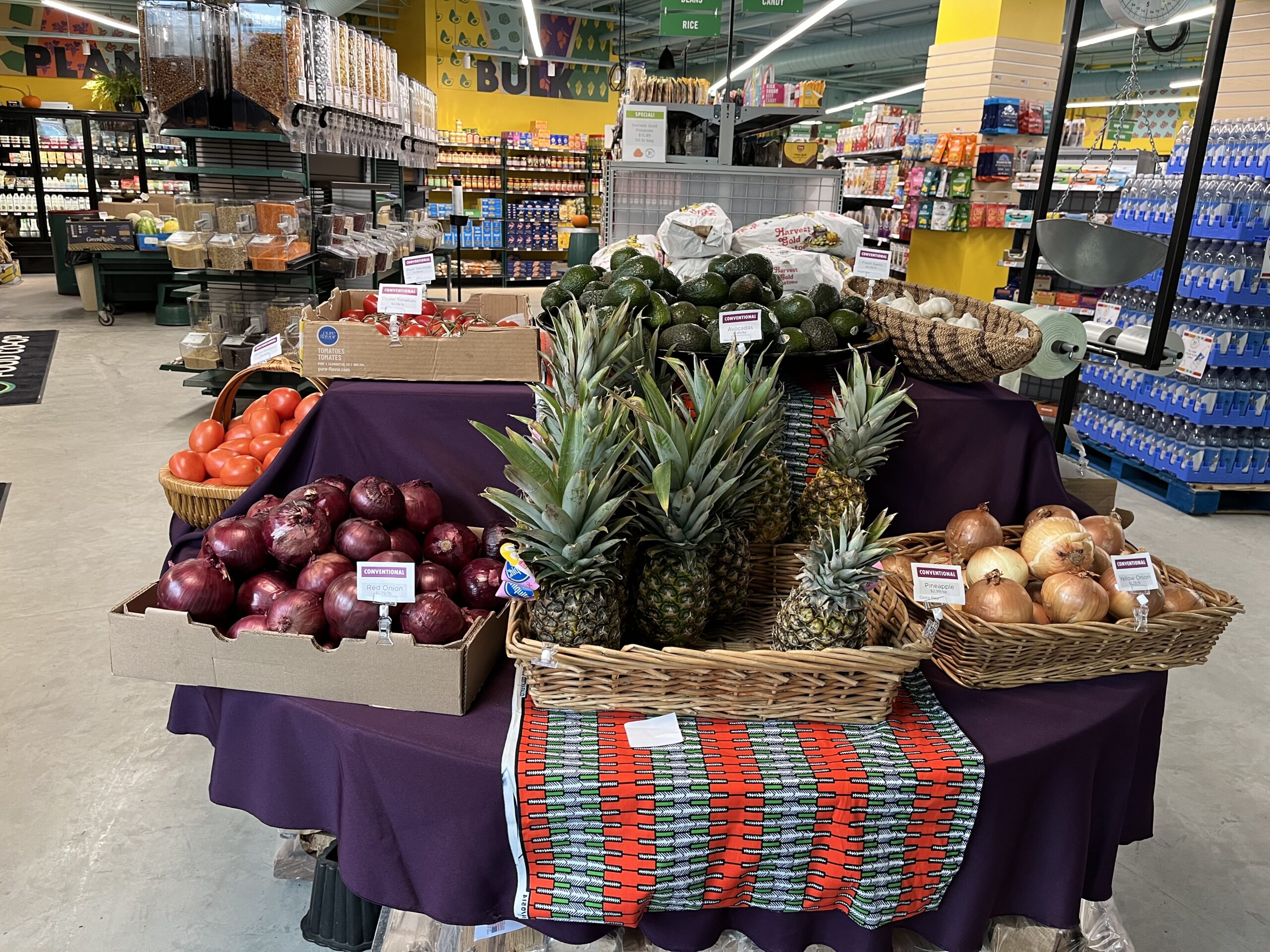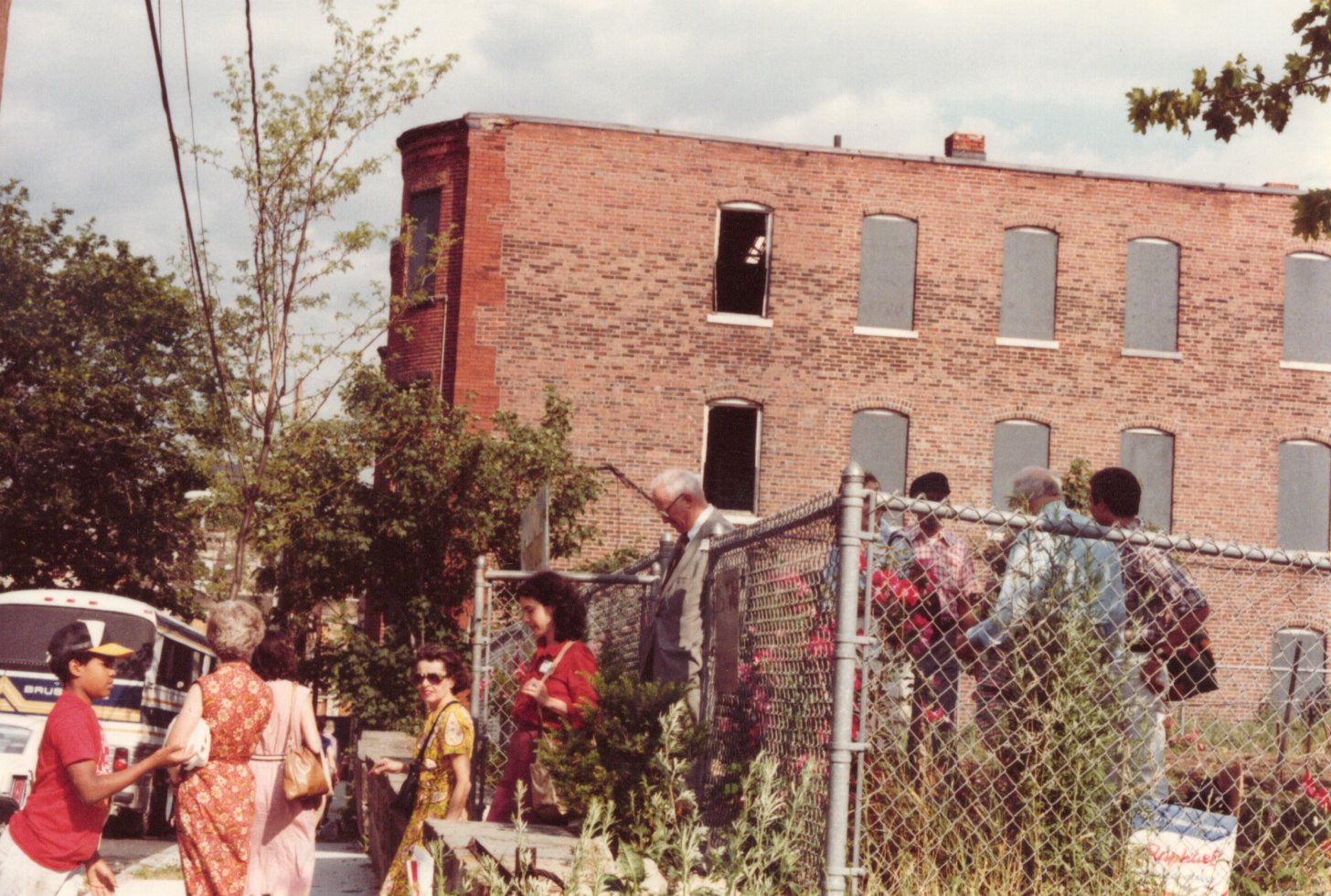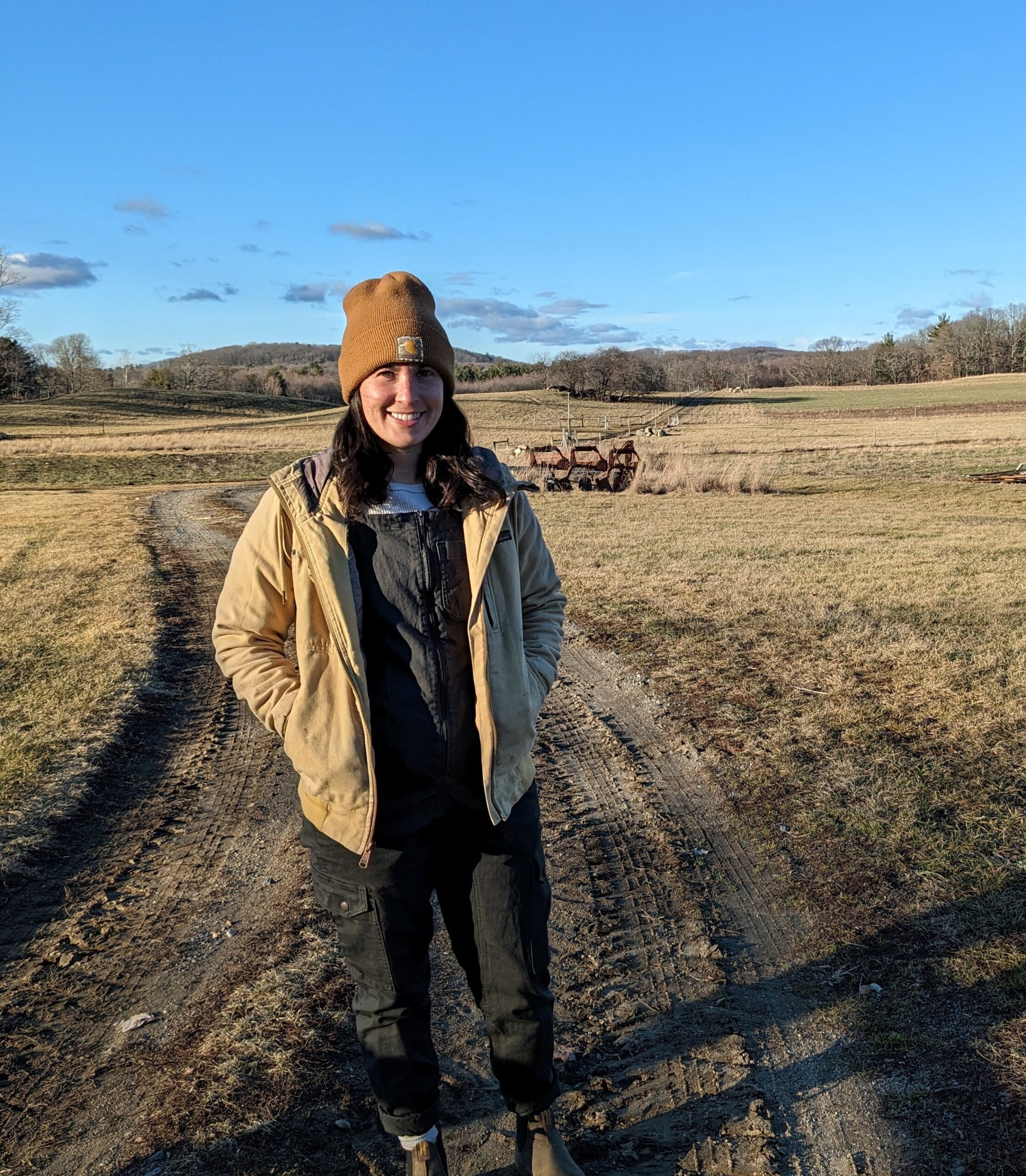
How did you get into farming?
I started farming as a volunteer while in high school. I was immediately hooked by working with my hands outdoors. Shortly after my first volunteer experience, I rented a plot from the local community farm to grow vegetables that I didn’t even know existed and volunteered whenever I had the chance. At this farm, I met my mentor who empowered me with the skills and knowledge to build a career in farming.
Prior to joining the Trustees, what were you doing?
I have been farming in some capacity for thirteen years in both Eastern Massachusetts and Southeastern North Carolina, where I attended college. Prior to joining the Trustees, I was the Assistant Farm Manager at Gaining Ground in Concord, MA. My responsibilities included assisting with the management of field operations, managing the greenhouses, and developing the education program. In tandem with my farm career, I have always integrated elements of agricultural education and food justice work. For several years, I have served as a Volunteer Educator for The New Garden Society. In this role, I teach horticulture at a Boston prison using on-site food and flower gardens to bring job skills and therapeutic greenspaces for incarcerated people.
When it comes to farming, what are you most passionate about or interested in?I am passionate about the social impact of farming. The intersection of food security and sustainable farming practices inspires the way I farm. These two concepts go hand-in-hand. I farm using low-till practices that focus on building soil health instead of degrading farmland through monoculture and overuse of fertilizers and pesticides. I farm using season extension practices, such as growing in greenhouses, which protects crops against shifting seasons and extreme weather events. The more socially and environmentally resilient this farm is, the more people this farm can feed for longer.
What is your area of expertise?
Farming is incredibly interdisciplinary; farmers are scientists, engineers, administrators, and so much more. I feel like I am continuously learning and growing my knowledge every season. I like to humbly think of myself as a renaissance farmer, rather than an expert on anything. I want to say I’m most well-versed in something cool like soil health or tomato diseases, but I have to say systems development. The skills of developing efficient systems were engrained in me early on in my farm career. I have had a lot of practice in systems development after participating in the start of several peers’ farms.
What attracted you to the opportunity at Chestnut Hill Farm?
Speaking of systems development, I love bringing a vision to life and I felt like I could do that here. Chestnut Hill Farm has so much potential. From its supportive community of neighbors to its agricultural infrastructure, this farm has the capacity to really flourish. I appreciate all the work the town and the Beals family did to conserve farmland in this area. I share their value for open spaces to preserve native species of wildlife and connect the community with nature. This farm has the bucolic charm of a rural agricultural landscape, but benefits from its close proximity to Framingham which is vibrant with cultures represented from all over the world. I look forward to feeding people from the surrounding communities and sharing this space with them.
What has been the biggest challenge so far at the farm? How have you overcome it?
Designing a crop plan for fields and customers that I am unfamiliar with is challenging. As a farmer, my job is to build a relationship with customers and with this land. This coming season, I will learn which weeds, pests, and diseases exist on this land. I will learn what parts of the fields get flooded and which ones are most fertile. And I will learn what vegetables our customers love, dislike, and everything in between. All this information will play a role in future crop planning. Until then, I am overcoming this challenge by leaning on years of experience growing vegetables in eastern Massachusetts and gleaning information from previous farmers and customers.
What are your farming priorities at Chestnut Hill?
First, I want to grow a diversity of high-quality nutritious food for our customers. I want them to be happy with the product. My second priority is that I want that high quality nutritious food to be grown in accordance with nature. I want to farm with respect to the local ecosystem from the birds in the sky to the microorganisms in the soil.
If someone had no idea what a CSA was, what would you tell them?
CSA, or Community Supported Agriculture, is a mutually beneficial relationship between a farm and its local community. In a CSA program, customers invest money at the beginning of the season for a weekly pick-up of vegetables during the abundant growing season.
If someone asked “why should I join a CSA? Why does it matter?” what would you say?
On a personal level, CSA programs are the most convenient means to maintaining a healthy diet. You aren’t spending time making your grocery list or figuring out recipes to feed yourselves or your families because we are doing it for you. But the benefits of joining a CSA transcend a healthy diet. In addition to healthy vegetables, you are building a relationship with me (your local farmer), your community, and the land every time you visit the farm to pick up your CSA share or walk our trails.
On a community level, CSA programs ensure food security. The very existence of small local farms relies on this CSA model, because financially it would be almost impossible to operate without your early season investment. In a time of impending climate change and an ever-changing social landscape, supporting local farms is more important than ever. Chestnut Hill Farm is resilient; we operate during global pandemics; our farming practices are designed to withstand increasing rates of droughts and drastic weather conditions. A CSA is a short-term investment with a long-term return.
